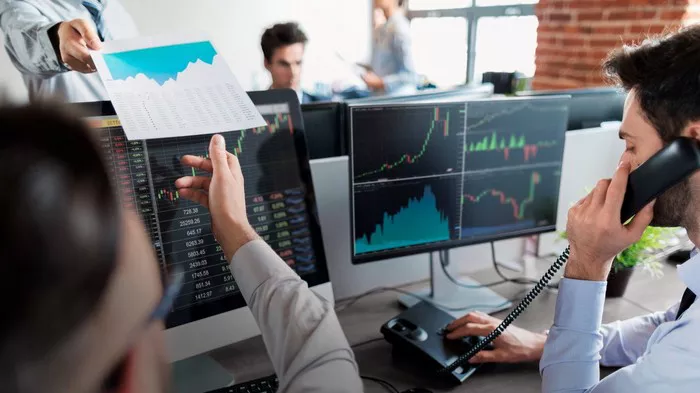Dow futures trading is an essential component of the global financial markets, providing investors with insights into the expected performance of the Dow Jones Industrial Average (DJIA) before the stock market opens. These futures contracts allow traders to speculate on the future movement of the Dow, providing an opportunity for risk management and profit potential.
What Are Dow Futures?
Dow futures, officially known as E-mini Dow Jones Industrial Average (YM) futures, are financial derivatives contracts that allow traders to speculate on the future value of the Dow Jones Industrial Average. They are a type of index futures, representing a scaled-down version of the DJIA. Dow futures are a critical tool for investors and traders to manage risks and make informed decisions in the financial markets.
Dow futures offer several advantages, including the ability to:
Hedge Portfolios: Investors can use Dow futures to hedge their existing stock portfolios by taking positions that offset potential losses.
Leverage: Futures contracts provide traders with leverage, allowing them to control a more substantial position with a relatively small initial investment.
Speculate: Traders can speculate on the future direction of the Dow, aiming to profit from price movements up or down.
Portfolio Diversification: Dow futures offer a way to diversify an investment portfolio beyond traditional assets like stocks and bonds.
How Do Dow Futures Work?
Dow futures are standardized contracts traded on futures exchanges, such as the Chicago Mercantile Exchange (CME). Each contract represents a specific value of the Dow Jones Industrial Average. The standard contract size for Dow futures is $5 times the DJIA, which means that a one-point change in the Dow equates to a $5 change in the value of the futures contract.
Dow futures contracts have expiration dates, typically occurring on the third Friday of the contract month. Traders can choose from a variety of contract months to suit their trading strategies. Upon the contract’s expiration, traders can either close out their position or roll it over to a new contract.
To trade Dow futures, traders need to open a futures trading account with a registered brokerage or trading platform. Once the account is established, they can access the futures market and place orders to buy or sell Dow futures contracts. These contracts can be held for short or extended periods, depending on the trader’s goals and market outlook.
Factors Influencing Dow Futures Prices
The prices of Dow futures are influenced by a multitude of factors, similar to those impacting the broader stock market. Understanding these factors is essential for making informed trading decisions. Here are some key elements that influence Dow futures prices:
Underlying Index: The Dow Jones Industrial Average itself is a major driver of Dow futures prices. Changes in the index’s components and their performance directly affect the value of the futures contracts.
Economic Data: Economic indicators, such as GDP growth, employment figures, and inflation rates, have a significant impact on Dow futures. Positive economic data can lead to bullish sentiment, while negative data can trigger bearish moves.
Corporate Earnings: Earnings reports from major companies listed in the DJIA can cause substantial price swings in Dow futures. Strong earnings often lead to optimism in the market, while disappointing earnings may result in a decline.
Interest Rates: Changes in interest rates set by central banks can influence the cost of borrowing and, subsequently, investment decisions. Traders keep a close eye on interest rate developments, as they can impact the attractiveness of equity investments.
Geopolitical Events: Political and geopolitical events, such as elections, trade tensions, and international conflicts, can create market uncertainty and influence Dow futures prices.
Market Sentiment: Traders’ sentiment, market speculation, and overall risk appetite also play a role in determining Dow futures prices. Positive sentiment can drive prices higher, while fear and uncertainty may lead to declines.
Global Markets: Dow futures can be affected by events in international markets, particularly if they lead to significant changes in global investor sentiment.
Technological Factors: Advances in trading technology, algorithmic trading, and high-frequency trading can lead to increased volatility in futures markets.
Current Dow Futures Trading Levels
This level reflects the market’s sentiment and expectations for the future performance of the Dow Jones Industrial Average. The current price provides valuable information to traders, investors, and market analysts, as it is a snapshot of market sentiment before the regular stock market trading session begins.
Conclusion
Dow futures trading is a vital part of the financial markets, offering a mechanism for investors and traders to speculate on the future performance of the Dow Jones Industrial Average. These financial derivatives provide opportunities for hedging, leveraging, and portfolio diversification, while also reflecting market sentiment and a wide range of influential factors.
Understanding the factors that influence Dow futures prices is crucial for making informed trading decisions. Investors and traders should stay informed about economic indicators, corporate earnings, interest rates, geopolitical events, and market sentiment to navigate the complexities of Dow futures trading successfully. The ability to monitor real-time Dow futures levels allows market participants to gain insights into market sentiment and make well-informed decisions.

